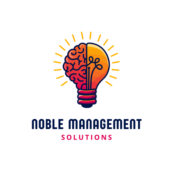Human Resources (HR) is often seen as the backbone of successful organizations, and for nonprofits, it plays a critical role in building teams that align with mission-driven goals. From attracting top talent to fostering a culture of collaboration and equity, HR practices in nonprofits go beyond administration — they directly influence the organization’s ability to create lasting impact.
At Noble Management Solutions, we understand the unique challenges nonprofits face in managing their teams, and we’re here to provide strategies and tools to help you succeed. This guide explores the essential role of HR in nonprofits and how you can optimize your HR practices to build teams that drive meaningful change.
The Unique Challenges of Nonprofit HR
Nonprofits operate in a unique environment that combines limited resources with high expectations for mission delivery. This creates distinct HR challenges:
- Resource Constraints: Limited budgets often mean nonprofits can’t compete with corporate salaries.
- Retention Issues: Burnout and turnover can be high in mission-driven work.
- Diversity and Inclusion: Building diverse teams that reflect the communities served is vital but often underfunded.
- Skill Gaps: Many nonprofits struggle to attract candidates with the specialized skills required for certain roles.
- Compliance: Navigating labor laws, tax requirements, and organizational policies can be complex.
Actionable Tip: Recognize these challenges as opportunities to innovate your HR practices. A creative, mission-aligned approach can turn perceived limitations into strengths.
Key HR Functions for Building Impactful Nonprofit Teams
1. Recruiting Mission-Driven Talent
Finding the right people is crucial for any nonprofit. Your team members should not only have the required skills but also share a passion for your mission.
Best Practices:
- Craft Compelling Job Descriptions: Highlight your mission, impact, and culture to attract candidates who align with your values.
- Leverage Networks: Use nonprofit job boards, community groups, and volunteer networks to reach mission-aligned candidates.
- Emphasize Non-Monetary Benefits: Highlight perks like professional development, flexible work options, and opportunities to make a difference.
Example Job Description Template:
- Title: Community Outreach Coordinator
- Mission Alignment: Join our team to expand access to education for underserved communities.
- Key Responsibilities: Build partnerships, manage community events, and advocate for our mission.
- Perks: Flexible hours, mentorship opportunities, and a supportive team environment.
2. Fostering a Culture of Equity and Collaboration
A strong workplace culture helps retain top talent and ensures your team feels valued and motivated.
Best Practices:
- Inclusive Practices: Develop policies that promote equity, such as pay transparency and anti-discrimination training.
- Team-Building Activities: Host regular team meetings, retreats, or collaborative workshops to strengthen bonds.
- Feedback Mechanisms: Use tools like anonymous surveys to gather employee insights and improve workplace policies.
Actionable Tip: Incorporate team-building into daily operations by celebrating small wins and encouraging cross-functional collaboration.
3. Employee Development and Retention
Investing in your team’s growth is key to reducing turnover and enhancing impact.
Best Practices:
- Professional Development: Offer workshops, training sessions, or funding for certifications relevant to their roles.
- Clear Career Pathways: Provide employees with opportunities to grow within the organization.
- Work-Life Balance: Promote wellness initiatives like mental health days or flexible schedules.
Client Success Story: We partnered with a nonprofit focused on environmental advocacy to develop a mentorship program. Within six months, employee satisfaction increased by 30%, and turnover decreased by 15%.
4. HR Compliance and Risk Management
Compliance isn’t just about avoiding legal issues; it also protects your employees and organization.
Best Practices:
- Document Policies: Maintain up-to-date employee handbooks that outline workplace expectations, benefits, and legal rights.
- Stay Updated: Regularly review and update your HR policies to comply with changing labor laws.
- Train Leadership: Ensure your managers understand compliance requirements and can address potential issues proactively.
Actionable Tip: Partner with an HR consultant to conduct regular audits and ensure compliance.
Why Nonprofits Should Prioritize HR
Investing in HR isn’t a luxury; it’s a necessity. A strategic HR function enables your nonprofit to:
- Build a team that is motivated and aligned with your mission.
- Enhance organizational efficiency and effectiveness.
- Foster a culture of equity, inclusion, and collaboration.
- Mitigate risks and ensure compliance.
- Achieve long-term sustainability and impact.
How Noble Management Solutions Can Help
At Noble Management Solutions, we specialize in providing HR solutions tailored to nonprofits. Here’s how we can support your organization:
- Recruitment Strategies: We help you find and attract mission-aligned talent.
- Culture Development: Our team designs programs to foster equity and collaboration.
- Compliance Support: We ensure your organization stays compliant with HR regulations.
- Leadership Coaching: We provide training and mentorship to build strong, effective leaders.
Ready to Build a Stronger Team? Your team is your greatest asset, and with the right HR practices, you can unlock their full potential. Let Noble Management Solutions partner with you to build teams that drive real impact. Contact us today for a free consultation and take the first step toward a stronger, more effective nonprofit organization.
